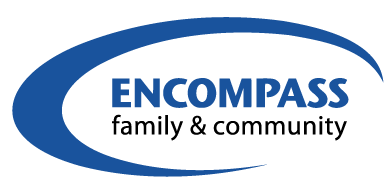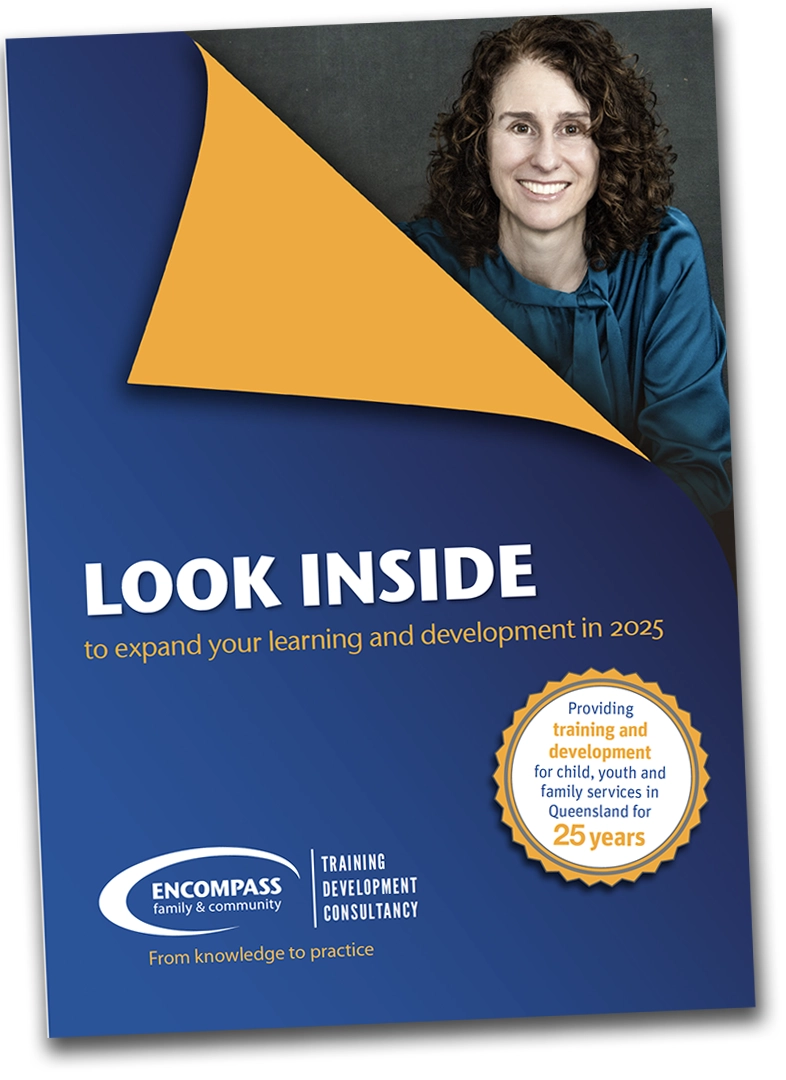Upcoming Workshops
Specialist in face-to-face or virtual training.
Search:
| Event | Venue | Date | |
|---|---|---|---|
| Making the Invisible...Visible! Child sexual abuse in family-based care | TBA |
|
Sold Out |
| First-Up – client response training for administration staff | TBA |
|
Sold Out |
| Making the Invisible...Visible! Child sexual abuse in family-based care | Online Workshop |
|
Sold Out |
| Repairing Broken Threads – reunification practice and process | Online Workshop |
|
Sold Out |
| Holding the space – effective supervision practice | TBA |
|
Sold Out |
Workshops not currently scheduled but available for delivery on request
For The Record – effective recording for child and youth work
Recording – from case notes to formal reports – is essential to effectively work with children, young people and families. This highly interactive workshop examines the art of recording in various contexts. Learn how to write wellstructured notes and reports which achieve their purpose as tools to help protect and support children and young people. Participants will learn to apply the ‘rules’ for succinct but effective recording, and increase their confidence in producing effective records to support practice.
Who should attend? Government and community agency workers, family support workers, youth workers, foster and kinship care support workers, intervention service workers.
Family Ties – enabling kin to care for family
The research is in! Children living away from home need to be cared for by kin whenever possible. However there can be some challenges to negotiate. Family relationships and interactions, cultural matters and worries about capacity or intergenerational trauma can all impact here. This workshop uses contemporary research and thinking to spotlight
how workers can be most effective in collaborating with families to enable and promote safe and responsive care by kin for children and young people. If we understand care by kin as ‘family supporting family’ then the question for workers is how to best support, resource and enable this?
Who should attend? Workers actively supporting care by kin from government and non-government services, Aboriginal and Torres Strait Islander agencies and non-Indigenous organisations.
Eyes Wide Open – assessing risk in foster and kinship care
There are no risk-free options in protecting children. Foster and kinship care can bring huge benefits and also some risk. This workshop offers foster and kinship care support workers the opportunity to clarify and develop their practice approach to ensure that they are tuned in to the structural risks of family-based care, as well as individual risk profiles for children and carers themselves. This workshop aims to promote purposeful and effective support work with carers that achieves safety, stability and continuity for children and young people.
Who should attend? Foster and Kinship Care Support workers in government and community agencies.
A Cook’s Tour of Change
Interested in knowing more about how to support the people you work with in achieving and sustaining change over time? This is the workshop for you! Our brand-new workshop gives you a “Cook’s Tour” of contemporary change theory – a rapid review of current research and thinking on change, informed by change theorists and the
neuroscience of change. Participate in activities that explore how to utilise this knowledge with the people you support in your practice and in your workplace. Together we will focus on these core questions:
- What can change theory tell me about how to understand change?
- What is my job as a ‘change agent’ and how can I actively apply change theory in my practice?
- What is effective in achieving and sustaining the change that people want in their lives?
Who should attend? Any practitioner or leader working, supporting and/or coaching children or young people, individuals or families in achieving change.
Bridging Troubled Waters – resolving workplace issues and difficult team dynamics (3hr workshop)
Positive team dynamics underpin effective workgroups and when all is well, we may take this harmony for granted. But when conflict or personality clashes persist, everyone is affected and productivity can plummet. This workshop considers the tricky issues in managing workplace conflict and tension and restoring harmony. How do you engage workers who do not respond to the usual supervisory efforts to address unacceptable behaviour? How do you use your own personality and negotiation skills to ensure fair dealing while getting to the source of trouble? What strategies and techniques might help? This workshop is for competent supervisors who need a few more ‘tricks up their sleeve’ for resolving workgroup issues and for those who want to avoid such issues arising.esolving workgroup issues and for those who want to avoid such issues arising.
Who should attend? Team leaders, supervisors and managers responsible for workgroups in both government and community agencies.
Building Bridges – child protection practice for educators
This workshop is specifically designed for teachers and school personnel. The concept of ‘building bridges’ acknowledges the roles of educators as conduits between home and school in promoting student wellbeing. This workshop covers legislative requirements for identifying and responding to harm to students, along with core concepts of effective child protection practice. Case scenarios guide participants to consider child protection risk and protective factors, to determine risk of significant harm and to decide the most appropriate course of action. We consider contemporary research about how best to support families within the school community to help prevent child protection crises.
Who should attend? Teachers, principals, school counsellors, school nurses and designated student protection officers.
Building the Picture for Educators – identifying and responding to harm and sexual behaviour
This workshop equips educators with knowledge and skills to meet mandatory training requirements for identifying and responding to harm. It considers concepts of abuse/neglect and likely harm to children, within the context of legal requirements and duty of care. It explores children’s sexual development and distinguishes between more
usual developmental behaviours and those considered problematic, providing a framework that guides educators in responding to all types of sexual behaviour. There is opportunity for participants to discuss behaviour and concerns encountered in work settings so that they leave the workshop with more confidence and potential solutions.
Who should attend? care educators, child care directors, family day care educators, outside school hours (OSHC) educators and directors.
DNA – development ‘N’ attachment for child protection work
Together, child development and attachment theory form a critical cornerstone underpinning practice across child protection, family support and youthwork. Yet many workers say they have only a hazy understanding of critical theoretical concepts and little real idea of how to use these in their practice. This one day workshop draws on
contemporary developments in research and theory to provide a practical working knowledge of child development and attachment for frontline child protection workers. Participants explore the implications of theoretical concepts for assessment and intervention and consider how to integrate theory with daily practice in their specific role.
Who should attend? Front-line workers, their team leaders and senior practitioners across the child protection, family support and youth sectors.
Leading Self and Others – being an effective leader in the human services sector
This workshop is tailored to the needs of your leadership team by drawing upon contemporary research and thinking about how to maximise individual leadership skills to meet the multi faceted challenges within the human services context. Being a ‘realistic’ leader is key and starts with understanding what you bring to your leadership role and how self awareness and knowledge is the springboard for developing your skills further.
Fine tuning your individual leadership skills is only part of the story – how you use these skills across all aspects of your work with clients, your team and other organisational leaders is also a key focus of this workshop.

